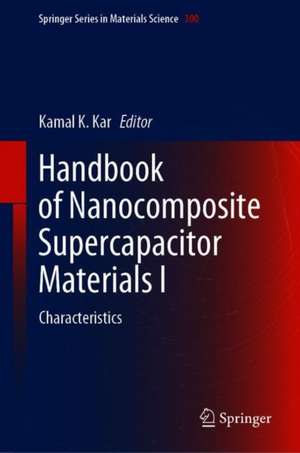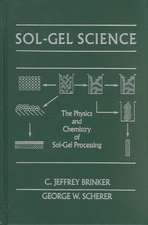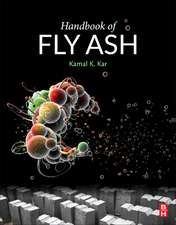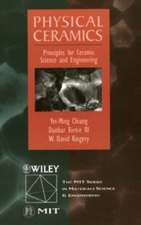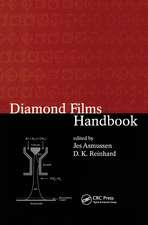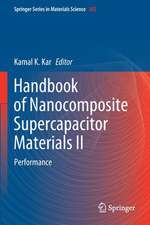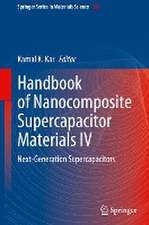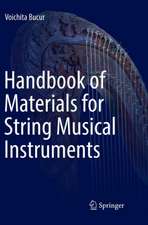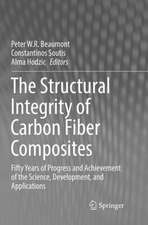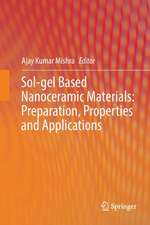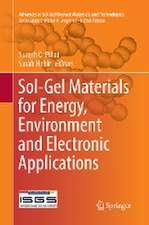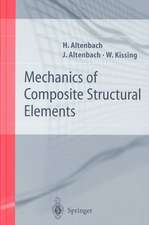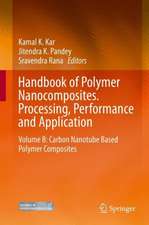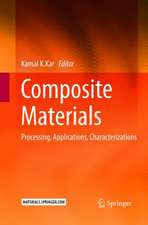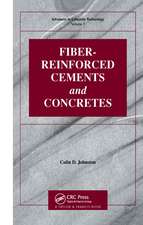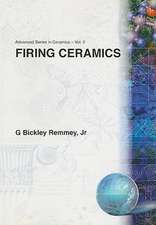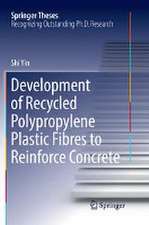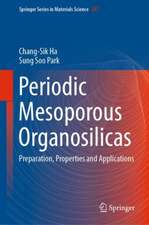Handbook of Nanocomposite Supercapacitor Materials I: Characteristics: Springer Series in Materials Science, cartea 300
Editat de Kamal K. Karen Limba Engleză Hardback – 17 apr 2020
This book is part of the Handbook of Nanocomposite Supercapacitor Materials. Supercapacitors have emerged as promising devices for electrochemical energy storage, playing an important role in energy harvesting for meeting the current demands of increasing global energy consumption. The handbook covers the materials science and engineering of nanocomposite supercapacitors, ranging from their general characteristics and performance to materials selection, design and construction. Covering both fundamentals and recent developments, this handbook serves a readership encompassing students, professionals and researchers throughout academia and industry, particularly in the fields of materials chemistry, electrochemistry, and energy storage and conversion. It is ideal as a reference work and primary resource for any introductory senior-level undergraduate or beginning graduate course covering supercapacitors.
| Toate formatele și edițiile | Preț | Express |
|---|---|---|
| Paperback (1) | 477.38 lei 6-8 săpt. | |
| Springer International Publishing – 17 apr 2021 | 477.38 lei 6-8 săpt. | |
| Hardback (1) | 482.90 lei 6-8 săpt. | |
| Springer International Publishing – 17 apr 2020 | 482.90 lei 6-8 săpt. |
Din seria Springer Series in Materials Science
- 18%
 Preț: 1820.22 lei
Preț: 1820.22 lei - 18%
 Preț: 776.09 lei
Preț: 776.09 lei - 24%
 Preț: 689.68 lei
Preț: 689.68 lei - 18%
 Preț: 968.96 lei
Preț: 968.96 lei - 20%
 Preț: 568.94 lei
Preț: 568.94 lei - 18%
 Preț: 953.65 lei
Preț: 953.65 lei - 18%
 Preț: 902.36 lei
Preț: 902.36 lei - 18%
 Preț: 953.65 lei
Preț: 953.65 lei - 20%
 Preț: 948.41 lei
Preț: 948.41 lei - 18%
 Preț: 1143.07 lei
Preț: 1143.07 lei - 18%
 Preț: 1111.53 lei
Preț: 1111.53 lei - 18%
 Preț: 1103.62 lei
Preț: 1103.62 lei - 18%
 Preț: 1225.94 lei
Preț: 1225.94 lei -
 Preț: 473.91 lei
Preț: 473.91 lei - 18%
 Preț: 782.42 lei
Preț: 782.42 lei -
 Preț: 433.47 lei
Preț: 433.47 lei - 18%
 Preț: 1116.40 lei
Preț: 1116.40 lei - 18%
 Preț: 946.24 lei
Preț: 946.24 lei - 18%
 Preț: 945.20 lei
Preț: 945.20 lei - 15%
 Preț: 641.20 lei
Preț: 641.20 lei - 18%
 Preț: 958.56 lei
Preț: 958.56 lei - 18%
 Preț: 1224.36 lei
Preț: 1224.36 lei - 15%
 Preț: 644.82 lei
Preț: 644.82 lei - 24%
 Preț: 833.43 lei
Preț: 833.43 lei - 24%
 Preț: 1060.33 lei
Preț: 1060.33 lei - 18%
 Preț: 964.10 lei
Preț: 964.10 lei - 18%
 Preț: 1224.36 lei
Preț: 1224.36 lei - 18%
 Preț: 1221.20 lei
Preț: 1221.20 lei - 18%
 Preț: 946.87 lei
Preț: 946.87 lei - 18%
 Preț: 1842.31 lei
Preț: 1842.31 lei - 15%
 Preț: 643.34 lei
Preț: 643.34 lei - 18%
 Preț: 1246.32 lei
Preț: 1246.32 lei - 18%
 Preț: 956.81 lei
Preț: 956.81 lei - 18%
 Preț: 953.52 lei
Preț: 953.52 lei - 15%
 Preț: 637.59 lei
Preț: 637.59 lei - 24%
 Preț: 1060.87 lei
Preț: 1060.87 lei
Preț: 482.90 lei
Preț vechi: 568.11 lei
-15% Nou
Puncte Express: 724
Preț estimativ în valută:
92.40€ • 96.72$ • 76.91£
92.40€ • 96.72$ • 76.91£
Carte tipărită la comandă
Livrare economică 31 martie-14 aprilie
Preluare comenzi: 021 569.72.76
Specificații
ISBN-13: 9783030430085
ISBN-10: 3030430081
Pagini: 364
Ilustrații: XXI, 364 p. 182 illus., 119 illus. in color.
Dimensiuni: 155 x 235 mm
Greutate: 0.75 kg
Ediția:1st ed. 2020
Editura: Springer International Publishing
Colecția Springer
Seria Springer Series in Materials Science
Locul publicării:Cham, Switzerland
ISBN-10: 3030430081
Pagini: 364
Ilustrații: XXI, 364 p. 182 illus., 119 illus. in color.
Dimensiuni: 155 x 235 mm
Greutate: 0.75 kg
Ediția:1st ed. 2020
Editura: Springer International Publishing
Colecția Springer
Seria Springer Series in Materials Science
Locul publicării:Cham, Switzerland
Cuprins
Properties of Capacitor: Fundamental Aspects.- Capacitor to Supercapacitor.- Characteristics of Transition Metal Oxides.- Characteristics of Activated Carbon.- Characteristics of Graphene/Reduced Graphene Oxide.- Characteristics of Carbon Nanotube.- Characteristics of Carbon Nanofiber.- Characteristics of Conducting Polymers.- Characteristics of Electrolytes.
Textul de pe ultima copertă
This book delivers a comprehensive overview of the characteristics of several types of materials that are widely used in the current era of supercapacitors; namely, architectured carbon materials, transition metal oxides and conducting polymers. It provides readers with a complete introduction to the fundamentals of supercapacitors, including the development of new electrolytes and electrodes, while highlighting the advantages, challenges, applications and future of these materials.
This book is part of the Handbook of Nanocomposite Supercapacitor Materials. Supercapacitors have emerged as promising devices for electrochemical energy storage, playing an important role in energy harvesting for meeting the current demands of increasing global energy consumption. The handbook covers the materials science and engineering of nanocomposite supercapacitors, ranging from their general characteristics and performance to materials selection, design and construction. Covering bothfundamentals and recent developments, this handbook serves a readership encompassing students, professionals and researchers throughout academia and industry, particularly in the fields of materials chemistry, electrochemistry, and energy storage and conversion. It is ideal as a reference work and primary resource for any introductory senior-level undergraduate or beginning graduate course covering supercapacitors.
This book is part of the Handbook of Nanocomposite Supercapacitor Materials. Supercapacitors have emerged as promising devices for electrochemical energy storage, playing an important role in energy harvesting for meeting the current demands of increasing global energy consumption. The handbook covers the materials science and engineering of nanocomposite supercapacitors, ranging from their general characteristics and performance to materials selection, design and construction. Covering bothfundamentals and recent developments, this handbook serves a readership encompassing students, professionals and researchers throughout academia and industry, particularly in the fields of materials chemistry, electrochemistry, and energy storage and conversion. It is ideal as a reference work and primary resource for any introductory senior-level undergraduate or beginning graduate course covering supercapacitors.
Caracteristici
Covers the fundamentals of simple capacitors to supercapacitors Compares and contrasts the characteristics of several types of modern supercapacitor materials Highlights various applications and future development trends of supercapacitors
